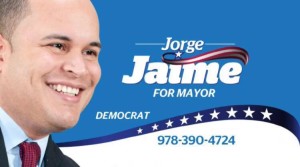By: Tom Duggan – July 29, 2017
Last week the Lawrence city council voted to ban the sale of marijuana within the city limits.
The unanimous vote (9-0) came after a full night of public debate and discussion from Lawrence residents with impassioned pleas on both sides of the issue. In the state ballot referendum last year Lawrence voters rejected legalizing marijuana 13,677 votes against and 9,890 in favor. SEE RESULTS
While Lawrence and other minority communities in Massachusetts are banning marijuana dispensaries and marijuana sales, the Black and Latino Caucus in the House of Representatives (MBLLC) has added an amendment to the bill that would make it easier for minority communities to open marijuana dispensaries. The chairman of that committee happens to be State Rep. Frank Moran of Lawrence. MBLLC Marijuana Bill Press Release-FINAL
“The MBLLC worked hard to ensure that our constituents have the opportunity to realize the full economic development potential the marijuana industry holds”, said Representative Frank Moran (D-Lawrence), MBLLC Chair.
Moran said that the inclusion of diversity language and licensing provisions restore equity in communities “harmed by disproportionate marijuana prosecutions.”
The Valley Patriot was curious about these conflicting actions of local vs state government on the issue of Marijuana so we asked Lawrence State Rep. Frank Moran why the state legislature, specifically the MBLLC seems out of step with what their minority constituents want.
Moran said that he 100% supports and represents what his constituents in Lawrence want.
“They (the caucus) brought some great ideas to the table. As a caucus we did a press release on the issue. During the debate we decided to add an amendment for more minority opportunities in getting a license to sell [marijuana] in the districts that have passed marijuana sales.”

MORE LOCAL CONTROL IS ALWAYS GOOD
“How this law works is, the cities and towns that voted in favor of the state ballot question have to allow marijuana dispensaries and sales of marijuana in their communities. That is, unless they have another local ballot question and the voters decide to change their minds and ban the sale. I believe this is the way it should be. It should always be up to the voters at the local level.”
“Now, 91 communities in Massachusetts voted against legalizing marijuana,” Moran continued.
“That’s 91 local governments that can take a vote right now to ban the sale of marijuana and reject marijuana dispensaries without a local referendum [ballot measure] because their voters have already spoken on the issue.”
Moran said that the compromise between what the house and senate wanted, lead to a very creative way to legislate a controversial issue, and added he’d like to see more local options like this in future legislation.
“The house wanted to give the issue back to the local governments. The senate wanted to have cities and towns do a ballot referendum to opt out. The compromise was to allow the communities that voted against marijuana sales to ban it and give the communities that voted for it, a way to change their minds with a ballot referendum.”
“We should do more legislation like this. Returning local control to cities and towns means the wishes of the voters are always being respected. I wish we did it like this more. Maybe we will.”
As for the seeming conflict between the Black and Latino Caucus and the decision by voters in Lawrence, Moran said that of the 13 members of he Black and Latino Caucus most are from Boston . “Yes, I’m the chair this session. And while I support my voters in Lawrence, I also represent two other communities. The caucus represents many minority communities that voted of this measure. So, we are simply giving them an opportunity to be part of the process, see some of the gains other communities are going see.”
